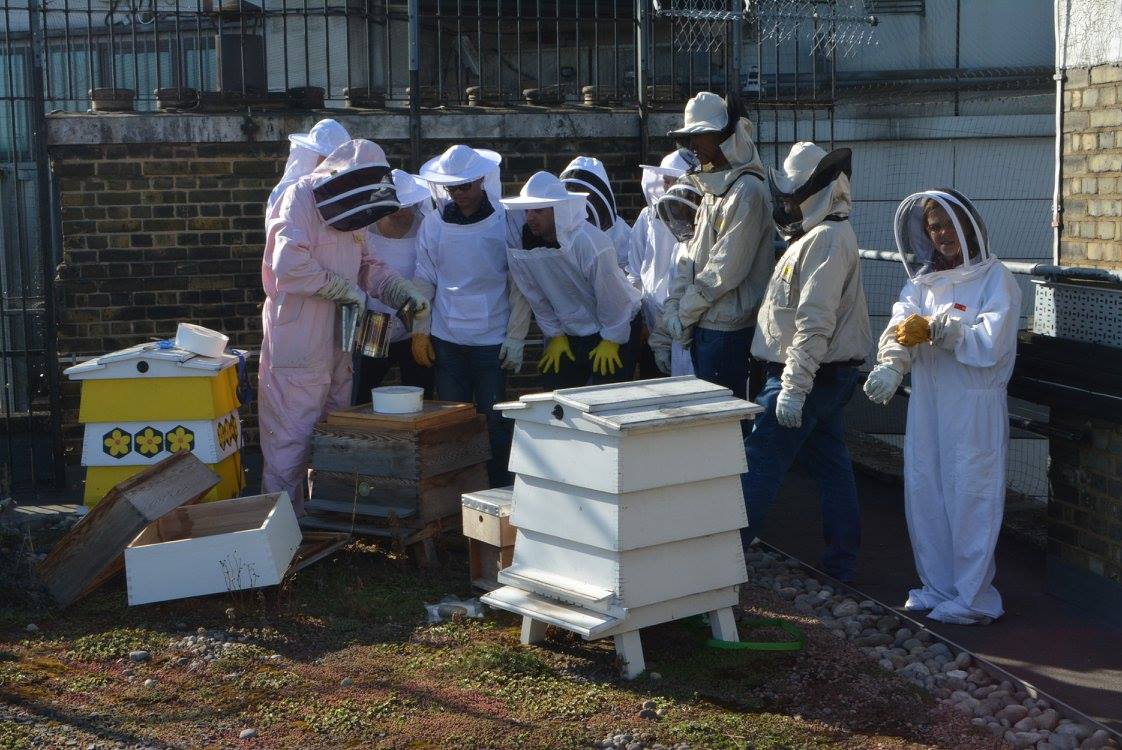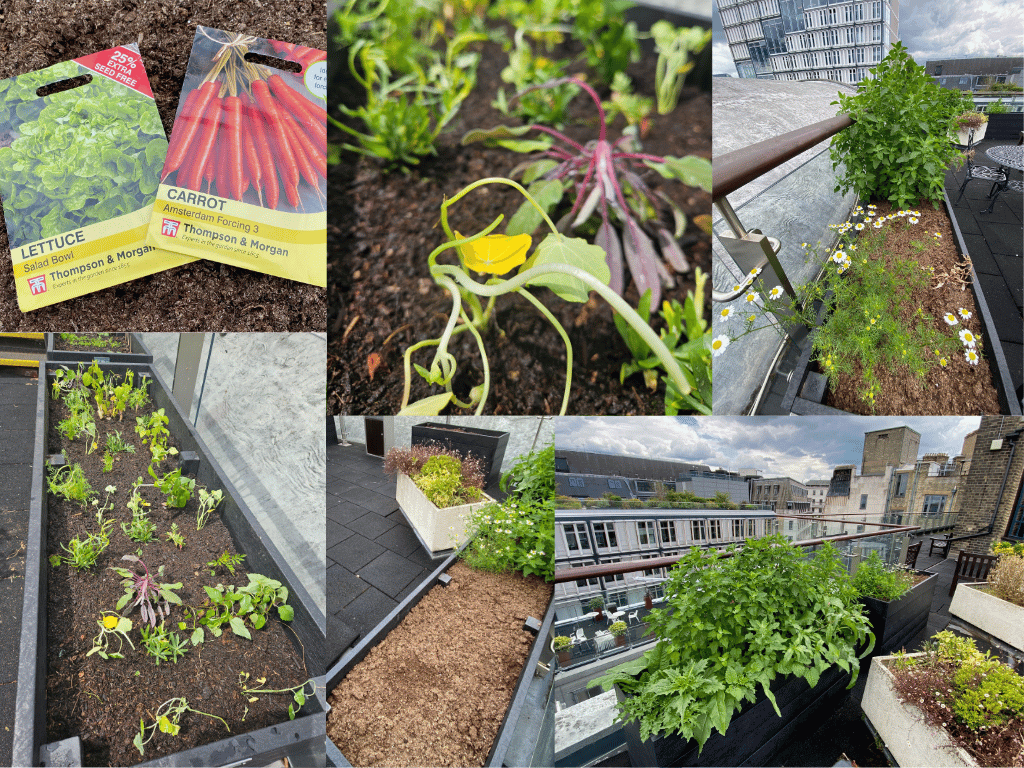Bicycle User Group (BUG)
BUG is a community of students and staff who cycle in and around LSE. BUG organises events and campaigns to make cycling safer in London. There is also a Teams Group where members can share useful tips, news, bike equipment swaps etc.
- To join the group, email sustainability.team@lse.ac.uk
Beekeeping
There are urban bee colonies on the rooftops of Connaught House which help LSE enhance biodiversity on the School estate and beyond.
The hives were financed by the LSE Sustainable Projects Fund and are cared for by students in the LSESU Beekeeping Society, bee expert Barnaby Shaw and Dan Reeves (LSE's Residences Sustainability Officer).
The LSESU Beekeeping Society is open for all staff and students who are interested in learning about urban beekeeping and discovering the world of bees. The Society organises talks, trips, film screenings and an annual LSE honey tasting!

Gardening Club (on LSE Rooftop)
There is a dedicated growing space on the roof terrace of the Shaw Library in the Old Building of LSE, and a committed group of staff and student gardeners who keep the recycled planters (a circular economy approach!) in shape. The terrace is an ideal place to relax with friends, and now you can try your hand at urban food growing too.
The rooftop planters were set up with funding from Capital Growth (a Mayor of London food-growing initiative) and the LSE Annual Fund.

(Rooftop planters on Old Building)